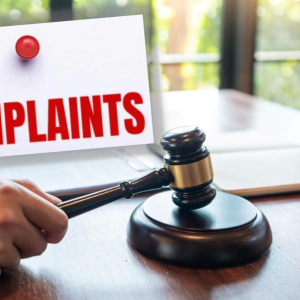When it comes to staying connected online, Virtual Private Networks — better known as VPN — have become one of the most popular tools for ensuring privacy, bypassing restrictions, and keeping personal information secure. But if you’re living in or visiting Dubai, you’ve probably heard mixed opinions about whether using a VPN is allowed. Is it actually illegal to use one? Or does it depend on how you’re using it? Let’s unpack the real rules behind VPN use in Dubai in a simple, human way.
What is a VPN and Why Do People Use It?
Before we get into legality, let’s quickly talk about what a VPN actually is. A VPN, or Virtual Private Network, is a tool that allows you to connect to the internet through an encrypted tunnel. This tunnel masks your IP address, making it look like you’re accessing the internet from a different country or location. It also shields your online activities from prying eyes.
People use VPNs for various reasons. Some rely on it for accessing restricted content, others for privacy while using public Wi-Fi, and many for work-related tasks that require secure connections. In countries with tight internet restrictions, a VPN can be a lifeline to open information and safer browsing.

What Do UAE Laws Say About VPNs?
Here’s where things get interesting. In the United Arab Emirates, including Dubai, the use of VPN technology isn’t illegal by itself. In fact, many companies, government offices, and private users legally use VPNs for business purposes, especially when dealing with sensitive data or accessing work servers from different locations.
However, it becomes a legal issue when a VPN is used to commit a crime or access services that the UAE has officially banned. The country has strict cybercrime laws, and any activity that violates these — with or without a VPN — can land you in serious trouble. For instance, using a VPN to access VoIP services (like certain calling apps) or streaming platforms that are restricted in the UAE can be punishable by hefty fines or other legal consequences.

So the legality isn’t about the VPN itself, but about what you choose to do while using it.

Common Misconceptions About VPN Use in Dubai
Because of the heavy regulations around internet content in the UAE, many residents and visitors automatically assume that all VPN use is forbidden. This isn’t true.
Businesses in Dubai openly use VPNs for secure transactions, data protection, and remote working solutions. Financial institutions, healthcare providers, and IT companies rely on them daily. The misconception stems from high-profile incidents where individuals misused VPNs for illegal streaming, accessing adult content, or unlicensed VoIP services. In such cases, it wasn’t the VPN that was the issue — it was the activity.
When Can VPN Use Lead to Legal Trouble?
If you’re using a VPN in Dubai, you need to be mindful of what you’re accessing. According to UAE laws, using a VPN to conceal criminal activity or to access banned services is a punishable offense. Some examples of illegal use include:
- Accessing VoIP services that are restricted by the country’s telecom authorities
- Unlicensed streaming platforms or adult content
- Websites promoting gambling or illegal activities
- Fraudulent online activities like scamming or hacking attempts
In these cases, penalties can range from hefty fines — sometimes over AED 500,000 — to imprisonment, depending on the severity of the offense.
Can You Use a VPN for Personal Privacy in Dubai?
Yes — you can use a VPN for personal privacy in Dubai, as long as your activities remain legal. If you’re connecting to a VPN while on public Wi-Fi, accessing your home country’s news sites, or safeguarding your private communications, you are within legal boundaries.
In fact, with growing cyber threats worldwide, using a VPN for protecting personal data is a wise move. Cybersecurity experts often recommend VPNs for individuals who travel frequently, work remotely, or deal with sensitive data over the internet.

What About Streaming Services and Social Media?
One of the biggest questions people have is whether they can use a VPN to stream international shows or access their favorite social media platforms. Streaming services like Netflix, Hulu, and Disney+ often have region-specific libraries, and some users turn to VPNs to unlock content unavailable in their current country.
Here’s the important part: accessing a geo-blocked service using a VPN isn’t automatically a criminal offense in the UAE unless the platform itself is restricted by the country’s authorities. While using a VPN to unlock foreign Netflix libraries might be against Netflix’s terms of service, it wouldn’t necessarily lead to legal trouble in Dubai unless the streaming service is on the country’s banned list.
As for social media, platforms like Instagram, Facebook, and Twitter are fully accessible in Dubai without a VPN. However, if you’re trying to use apps or websites that are restricted — like certain calling apps — doing so with a VPN would fall into a legal gray area and could be considered a violation.
How Are VPN Laws Enforced in Dubai?
Many people wonder how authorities track VPN use and whether everyday users are being monitored. While it’s true that UAE telecom providers have sophisticated systems for detecting unauthorized services, authorities typically focus on large-scale violations or high-profile incidents. Businesses and individuals who use VPNs for legitimate, non-criminal reasons rarely face any scrutiny.
That said, the government takes cybercrime seriously. If a person is found committing an online crime or using banned services via a VPN, the penalties can be severe. Enforcement largely depends on what you’re doing with the VPN rather than the mere fact that you have one installed.
Staying Safe and Legal with a VPN in Dubai
If you’re considering using a VPN in Dubai, here are some practical tips to stay within legal limits:
- Use it for security and privacy purposes, such as protecting personal data while using public Wi-Fi.
- Avoid accessing websites and services that are officially restricted by the UAE government.
- Choose reputable VPN providers that offer strong encryption and do not log user activities.
- Familiarize yourself with local cyber laws to understand what constitutes illegal online behavior.
Knowledge is power — and in this case, it can save you from unnecessary legal complications.

Why VPN Use Is Growing Despite Restrictions
Interestingly, even with strict internet laws, VPN usage in the UAE continues to rise. The modern workforce is increasingly mobile, and businesses require secure, encrypted connections to maintain productivity and protect sensitive information. Remote working, global teams, and cloud-based operations have made VPNs a critical tool in today’s digital world.
On a personal level, people value their online privacy more than ever before. From shielding sensitive communications to protecting banking details, VPNs serve as a digital shield against growing cyber threats. The key is knowing how to use them responsibly and within the framework of local laws.
Final Thoughts: Should You Use a VPN in Dubai?
The bottom line is that VPNs are not illegal in Dubai — but their misuse can lead to serious consequences. If you’re using one for legitimate business or personal security reasons, you have little to worry about. Problems arise when VPNs are used to access banned content or services.
Understanding the rules and being mindful of your online activities ensures that you can stay both safe and legal while enjoying the benefits of enhanced privacy and security. In a digital era where our data is constantly exposed, using a VPN wisely is not just smart — it’s essential.
So yes, you can use a VPN in Dubai. Just make sure you know where the legal lines are drawn and respect them. As with many things in life, it’s not the tool itself, but how you use it that matters.
Do follow UAE Stories on Instagram













